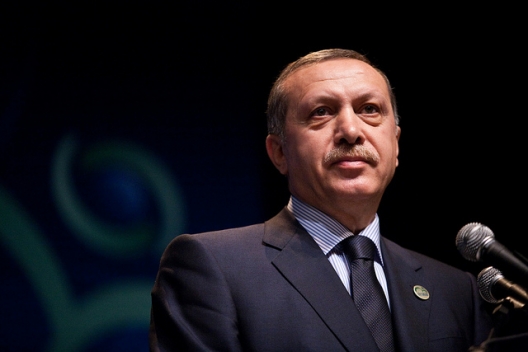 Ankara has recently moved to diminish Turkey’s military dependence on the West, including last month inaugurating rocket testing and a radar technologies facilities. Both are part of Turkey’s effort to boost a fast-growing arms export industry that also is supplying its own forces with locally built tanks, warships, drones, missiles and—by the republic’s centenary in 2023—a jet fighter.
Ankara has recently moved to diminish Turkey’s military dependence on the West, including last month inaugurating rocket testing and a radar technologies facilities. Both are part of Turkey’s effort to boost a fast-growing arms export industry that also is supplying its own forces with locally built tanks, warships, drones, missiles and—by the republic’s centenary in 2023—a jet fighter.
Ankara has also rejected bids by its NATO allies for a missile-defense system in favor of a Chinese-built one that one these partners say is incompatible with their technology and threatens intelligence cooperation.Turkey’s Islamist-rooted government argues it needs a more independent military force to avoid the fate of the Ottomans, whose empire collapsed after banking on alliances with Germany and Austria-Hungary, only to be invaded by the U.K. and France—a bitter historical chapter that still fuels mistrust toward the West.
“We lost World War I because the Ottoman state did not have its own combat technique,” Prime Minister Ahmet Davutoglu said at a March ceremony at the 100th anniversary of the Turk victory over the Allies in the Dardanelles. “A nation that doesn’t have its own defense industry cannot have a claim to independence….”
“Turkey is recasting itself as a nonaligned country in its rhetoric, which is making NATO very uncomfortable,” said a Western official in Brussels. “Turkey’s stance will be an issue for years to come, not only if the Chinese missile deal happens, but also because of its politics.”
Many officials in Washington and Brussels view the developments as part of a broader pivot by President Recep Tayyip Erdogan, whose efforts to forge an independent foreign policy also led to other strains—over Syria, Egypt and Israel, for example….
“They don’t want a strong Turkey,” Mr. Erdogan said as he opened weapons manufacturer Aselsan AS ‘s Radar and Electronic War Center in Ankara in March, referring to the West. “Supposedly these are countries that we cooperate with, that we are together with in NATO.”
Image: Turkish President Recep Tayyip Erdogan, May 28, 2010 (photo: United Nations)
